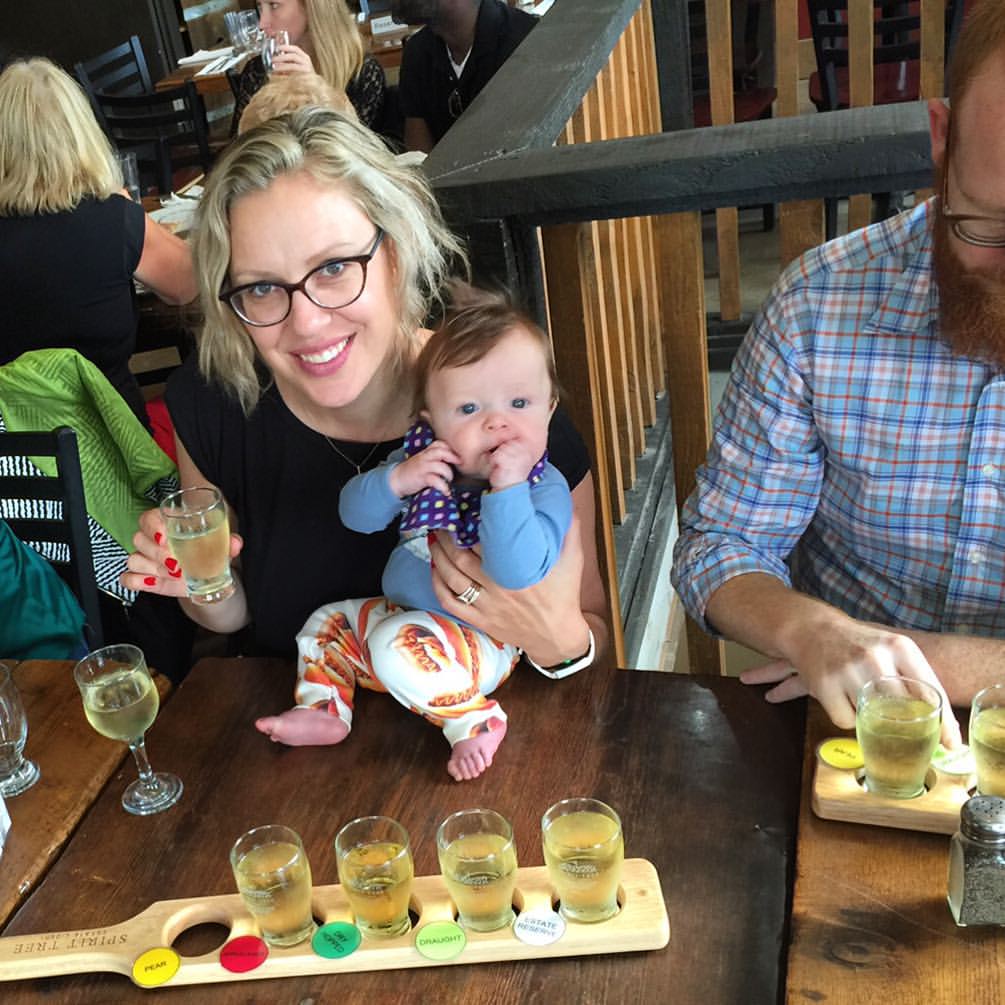This article originally appeared on VICE Canada.
This is the first entry in our new series 'Quit the Nine-to-Five' where we introduce you to people who have left their boring jobs for something less ordinary.
Maybe you’re sick of the daily grind. Maybe you hate your boss. Maybe the work you do is soul-crushing. There are lots of reasons why people dream about escaping the nine-to-five. But few people have the cojones to actually do it.
If you do decide to take the leap, a recent MIT study shows you’re 125 percent more likely to succeed if you’re already working in the field in which you’re going to run your own business. And the most widely-cited research shows you’re 33 percent less likely to fail if you dip your toe in first by trying things out as a side hustle.
In this series on escaping the nine-to-five, we talk to people who are living the dream about how they got there and what it takes to kiss that steady paycheck goodbye and just… go for it.
Crystal Luxmore was in her early 30s when she left her full-time job in communications. She now runs a beer business with her sister, and a Toronto-based educational walking tour company. Both businesses allow her to make more or less the same money as her old corporate desk job.
She had a bunch of side hustles in between—switching careers a few times—and also somehow managed to get married and have a couple of kids. Luxmore shared her story with VICE because she knows firsthand that being your own bawse isn’t for everyone.

VICE: What were you doing before you started your own company?
Crystal Luxmore: The last full-time job I had was at Aston University in the UK, I worked as the communications person for a research group. I made about $65,000 [$48,646 USD] per year there. When I broke up with my long-time English boyfriend and moved back to Canada, I went after my dream of becoming a journalist. Since then, I've worked as a freelance writer and editor for a number of publications as a sole proprietor. The money wasn't great, between $35,000 [$26,194 USD] and $50,000 [$37,420 USD] a year. In 2011, a business I started with a friend, called Walk T.O., started taking off and helped pad out my income. It's a walking tour company for schools.

Tell me about what you do now, and how that compares financially to your desk job days?
Two years ago, my sister and I launched our own company, called Beer Sisters Inc., where we offer a whole bunch of beer-related services, we are both "beer sommeliers." I'm one of only fourteen Advanced Cicerones in the country. Plus, I bought my partner out of Walk T.O. and now I’m the sole director. I spend my time growing both businesses and we continue to invest in their growth and pay our contractors well—this means I earn less than I'd like, between $40,000 [$29,936 USD] and $70,000 [$52,388 USD] per year.
You said goodbye to a steady, predictable paycheck. How hard is it to manage lumpy earnings?
It's challenging that you can have a banner year, do everything right by the client, and then their budget gets cut, or someone new comes in—and you've lost a significant revenue stream. Because Beer Sisters is so service-oriented, and we have a lot of different clients, many of whom buy once or twice a year, it's hard to build a business plan based on past performance. We're more conservative in our estimates and in our salaries because of the peaks and valleys.
What made you decide to quit your nine-to-five? And what made you decide to be your own boss instead of working for a boss?
I have a lot of ideas and I like to make them happen. Being an entrepreneur is the best way to do that for me. I always liked running my own businesses, but I didn't truly love it until two things happened: My sister came on board—working with her pulled me out of isolation and gave me a new drive to be excellent everyday.
And I changed the narrative on my walking tour company from something that was easy to run but took me away from my true passion which is beer, to an organization that educates kids, employs way too many beautiful humans, and gives me a chance to sell an actual product, rather than with Beer Sisters, where we're essentially selling our expertise.
Running two very different businesses can be a bit messy sometimes in terms of my headspace, but I'm finally at a place where I see the fun in both, and where I'm applying lessons learned with Walk T.O. to Beer Sisters.
What gave you the idea to start a craft beer company?
I was writing about everything under the sun, and finally found my beat when I found craft beer. After that, I wanted to become a Certified Cicerone—which is a beer sommelier—so that I could work with corporations and have a chance to talk about beer and not just write about it. My sister, Tara, had always helped me out and when we were both on mat leaves we decided to go all in and join forces by creating Beer Sisters.
What advice do you have for people who dream of abandoning the rat race and the path most traveled?
Running your own business means doing all the things. Set yourself up for success and hire experts to do the stuff you hate. It took me way too long to spring for a real accountant, bookkeeper, and organized invoicing system. If you don't have built-in business skills, invest in a business coach for advice on how to grow—or even give you permission to take time off. I talked to a corporate coach before my second child was born and it helped me to plan my dream maternity leave/work situation. It was way better than the first time around where I felt constantly pulled between my baby and my corporate babies.
Sign up for our newsletter to get the best of VICE delivered to your inbox daily.
Follow Anne Gaviola on Twitter.
from VICE https://ift.tt/2UohCtw
via cheap web hosting
No comments:
Post a Comment